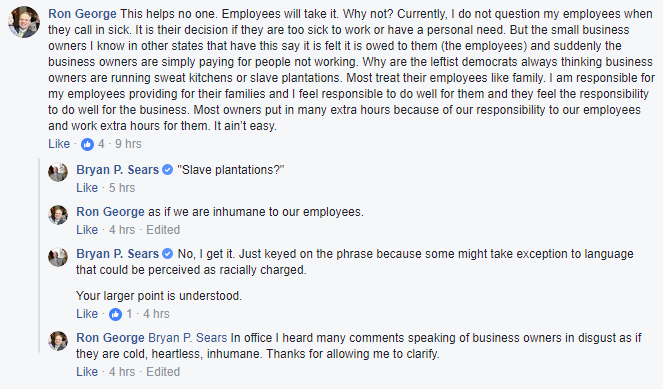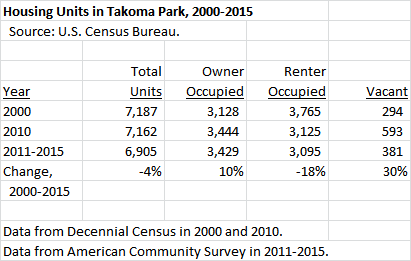Question: The county’s liquor monopoly has come under heavy criticism–not least from Seventh State. If at all, how would you reform or change, or press the state legislature to change, the Department of Liquor Control?
Roger Berliner
At the county level, I have been the chief advocate for ending our unique – and counterproductive – liquor monopoly. As someone who has fought monopolies most of my professional life, I know in my bones that monopolies are rarely, if ever, in the public interest. Government monopolies are generally even less efficient. And a government monopoly that tries to do a job that the private sector does in the rest of the country is almost always less efficient. That is true in MoCo. As a result, our residents vote with their feet. Almost one-third of our purchases of liquor are made outside Montgomery County. Our restaurants hate it. Top flight restaurants have said that they would never come here. Bottom line: our monopoly needlessly perpetuates the reputation of our county being anti-business and anti-consumer and stunts our economy.
However, the state is a critical partner in this conversation. It is state law that created our monopoly, and state law must be passed to change it. The positive side of this dynamic is that the state would be the principal, direct beneficiary of increased liquor sales. I would work with the Governor and our legislature to split the savings that the state would derive and hold the county harmless as it weans itself from this monopoly. The dollars are not that significant given that our retail operations should continue to do well – assuming that they can compete! And in the long run, our county will prosper more without the monopoly than with it.
Marc Elrich
Any discussion of the Department of Liquor Control (DLC) must acknowledge that the Montgomery County budget relies on over $30 million in liquor revenue per year. That is no small amount of money, and it supports critical county services, including almost $11 million for bond payments. Nobody who has proposed privatizing the county’s liquor supply has a workable plan to fill the budget hole privatization would create, likely because there is no way to do so that doesn’t create other problems for the state.
Privatization proposals thus should not be taken seriously; instead, we should continue to look for ways to make the DLC more efficient and effective than it has been in the past, and to increase sales so that we can increase the revenue that the DLC generates.
We’ve already changed the way the DLC is run by bringing in industry professionals, including the director and the warehouse manager, who have improved the operations of the liquor system and brought in a philosophy of continuous improvement. I’ve also encouraged introducing lower markups for more expensive items, which they did, and I’ve supported and will continue to support efforts to help local breweries and wineries sell and distribute their goods. Both the new director and I want to hear and consider other ideas for helping transition the DLC from something that the county has long taken for granted into a professionally run system.
In fact, if a private-sector business had a division that produced a substantial profit but was identified as having management problems and customer service issues that prevented it from being more profitable, its most likely course of action would be to change management, work to improve services, and strive for greater profits. That is exactly what we have been doing with the DLC.
Bill Frick
I have been the state’s leader on fixing this abysmal broken system. My “end the monopoly” effort, helped immensely by the Seventh State’s Adam Pagnucco, fell short in 2016 in large part because of vigorous opposition from the Council and County Executive. We agreed to let the Executive lead a work group on the issue, but that work group served no real purpose other than to push the issue onto the desk of the next Executive.
This is a great opportunity. The DLC has value, and I have proposed to ensure that the value stays with Montgomery County by selling off the DLC’s assets, such as its franchise rights to beer distribution, its stores and warehouse, to generate millions in capital dollars that can be spent on school construction. Because the elimination of the DLC will generate millions in repatriated sales and excise tax dollars, I would work with my colleagues in the legislative leadership to help return some of those revenues to the County. Finally, we all know that the work of alcohol distribution will not disappear with the end of the DLC, rather, those jobs will migrate to the private sector and will likely grow in the County as our consumers come home to buy their beer, wine and spirits here. I will work with the private sector distributors and unions to find the best outcomes for current DLC employees as we get the County out of the liquor business.
George Leventhal
I am willing to entertain serious negotiations with parties who are willing to make a serious offer to purchase the right to distribute beer, wine and spirits in Montgomery County. In FY 2018, that enterprise generated more than $33 million in surplus revenue over expenses to the county’s general fund, of which $11 million was spent on debt service for approximately $100 million in Liquor Control Revenue Bonds, which were issued more than a decade ago to pay for transportation improvements, including the Montrose Parkway. I think we should commission an independent economic analysis of the present value of a guaranteed revenue stream of more than $30 million each year. My understanding is that it would come to hundreds of millions of dollars – more than enough to retire the bonds. I do not think the county should simply give away these valuable rights, which belong to the people of the county. However, serious offers from serious buyers should be considered. Simply giving the rights (and the associated revenues) away would require that the bonds be retired or refinanced through other means. If general obligation bonds were used to refinance the Liquor Control Revenue Bonds, it would reduce the county’s ability to construct new schools and other capital projects by $100 million.
In the absence of a serious offer to buy the rights to the entire enterprise, I continue to support the County Council’s 2015 proposal to privatize special order sales of beer and wine. Problems with delivery of special orders comprise the vast majority of complaints from restaurants, but the Montgomery County delegation to Annapolis declined to take up the County Council’s proposal in the 2016 session after County Executive Leggett asked for more time for study.
The Montgomery County delegation also declined to take up proposals for immediate privatization or for a voter referendum. Candidates for County Executive who have concerns about the Department of Liquor Control’s shortcomings should remember that liquor laws are made in Annapolis, not in Rockville. I would also support action by the state legislature to allow sales of beer and wine in grocery stores. Beer and wine stores will soon be able to sell spirits under legislation that passed in the 2017 session, which I supported.






